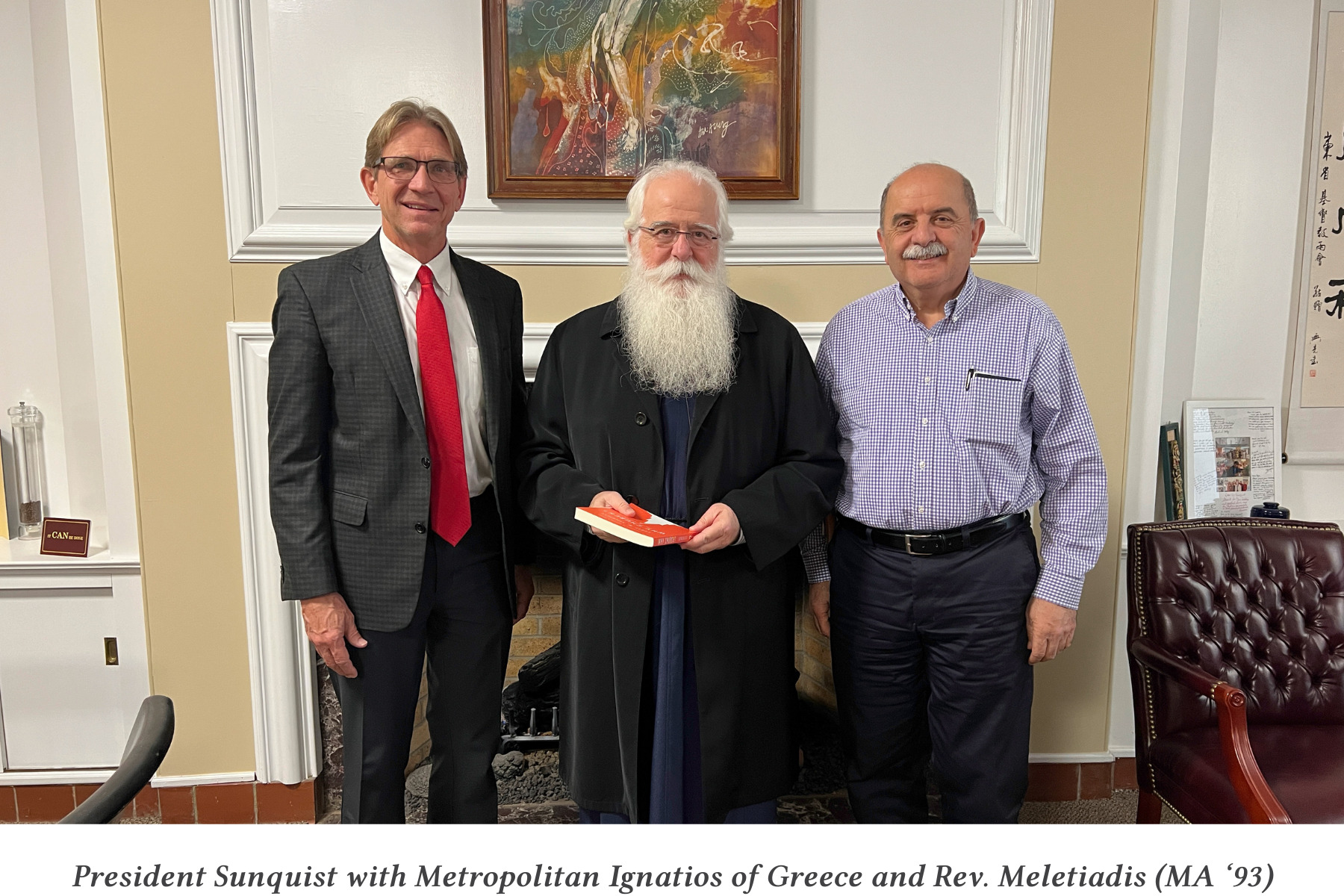John 17: Evangelism and Credible Witness

Non-denominational. Multi-denominational. Denominational. United.
These are different ways of thinking about a Protestant Christian organization like a seminary. Gordon-Conwell is not a denominational seminary. I have taught at such a seminary, and there were certain advantages when it came to recruiting students and in developing a coherent curriculum, but there were also disadvantages. I have also taught at a “union” or united seminary. Again, there are advantages for such a seminary since it had organic connections with four denominations. Hiring faculty, raising financial support, and recruiting students were very focused.
Gordon-Conwell is different. We are multi-denominational. We have official connections, programs, degrees, or curriculum with eighty-five evangelical denominations—the likes of Lutherans, Baptists, Anglicans, Presbyterians, and others. We encourage BOTH commitment to your heritage or your church family AND cooperating with other Christian traditions centered on the Gospel according to Scripture—unity in diversity firmly grounded in Scripture. It is a beautiful way of living and learning, pointing toward the heavenly vision of Revelation 7.1
One of the great strengths of Gordon-Conwell, according to numerous surveys, is this diversity of denominations or Christian traditions.
I would like to suggest that the decline of Christianity in the West and the divisive global culture we currently contend with call for us to lean into the profound unity we have in Jesus Christ and to embrace healthy Christian diversity. We need to be identified as Jesus-loving, Bible-believing Christians before being identified as Presbyterians or Baptists or Pentecostals. What does this look like and mean?
First, I think it means continuing to emphasize our strong view of Scripture, knowledge of Scripture and obedience to all of Scripture. For example, at points of disagreement or debate, rather than first deferring to our own tradition from the Reformation (or from eighteenth or nineteenth century revivals), we defer first to Scriptural teachings. Whenever we use words which are extra-biblical, I think we need to ask if summoning such terminology is helpful and unifying for other denominations, or do our words divide us?
Secondly, I think it means holding onto our “statements” more loosely than we hold on to Scripture, the Apostles’ Creed, and the Nicene Creed. As with the Reformation, our rallying cry should be “ad fontes!” (back to the sources). The sources for us are the Scriptures and the early church, just as they were for the Reformers. We all share in the history of those first centuries when Trinitarian formulae were being worked out and the Great Commission was first being lived out. I believe we will find greater unity if we focus on the deep connections at our Christian sources.
Finally, I believe we need to be more generous in seeing Bible-believing, Jesus-loving Orthodox, Pentecostals, and non-denominational Christians as our brothers and sisters in Christ. Sometimes there are church leaders within our traditional circles that create more of a problem for our Christian witness in society than an Orthodox sister who is involved in evangelism among Muslim immigrants in Greece or Lebanon. Keeping the main thing the main thing and not letting labels define us is a way of showing kindness and mercy.
My reason for talking about unity again and again is because of the clear teaching from Scripture AND our present situation of losing our Christian witness in the West. We need to be united in Christ for our evangelistic efforts to be at all credible. So, for the sake of evangelism and credible witness, love one another. Jesus expressed it as a prayer:
“I pray also for those who will believe in me through their message, that all of them may be one, Father, just as you are in me and I am in you. May they also be in us so that the world may believe that you have sent me. I have given them the glory that you gave me, that they may be one as we are one—I in them and you in me—so that they may be brought to complete unity. Then the world will know that you sent me and have loved them even as you have loved me.” (John 17:20-23)
[1] “There before me was a great multitude that no one could count, from every nation, tribe, people and language, standing before the throne and before the Lamb.” (v.9)
 Dr. Scott W. Sunquist, President of Gordon-Conwell Theological Seminary, is author of the “Attentiveness” blog. He welcomes comments, responses, and good ideas.
Dr. Scott W. Sunquist, President of Gordon-Conwell Theological Seminary, is author of the “Attentiveness” blog. He welcomes comments, responses, and good ideas.